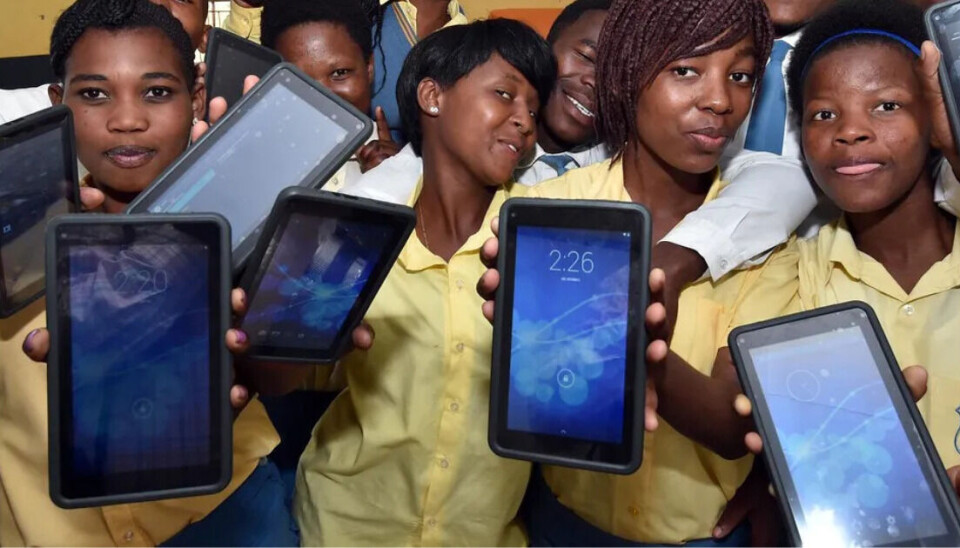Copyright : Re-publication of this article is authorised only in the following circumstances; the writer and Africa Legal are both recognised as the author and the website address www.africa-legal.com and original article link are back linked. Re-publication without both must be preauthorised by contacting editor@africa-legal.com
Smartphones in Schools: The Legal and Policy Imperatives for South African Schools

With smartphone use now all-pervasive throughout society, how do schools deal with both the opportunities and threats that smartphones can pose for students? Robyn Shepherd of SchoemanLaw Inc examines where responsibility lies
OPINION
Smartphones have become ubiquitous in South African society, and schools are no exception. While these devices offer educational opportunities and facilitate communication, their misuse during school hours presents significant challenges. Learners have used smartphones to engage in cyberbullying, sexting, academic dishonesty, unauthorized recording of teachers and peers, and other disruptive behavior.
In more serious cases, smartphone misuse may constitute criminal conduct, placing both learners and schools at legal risk. Schools are therefore compelled to regulate smartphone use within their environments, balancing learners’ constitutional rights with their duty to maintain safe and effective learning conditions.
Legal Framework
The legal framework governing smartphone misuse is multifaceted. The Cybercrimes Act 19 of 2020 criminalizes unlawful access to or distribution of data, including the sharing of intimate images without consent. The Films and Publications Amendment Act 11 of 2019 prohibits the creation, possession, and distribution of child pornography, an offence that may be committed where learners create or share sexual images of themselves or peers.
The Protection of Personal Information Act 4 of 2013 (POPIA) introduces obligations to protect personal information, making it unlawful to record or distribute data without proper consent. At the institutional level, the South African Schools Act empowers governing bodies to adopt and enforce codes of conduct to regulate learner behavior, which provides the legal basis for regulating smartphone use in schools.
It is within this framework that schools must exercise their authority through carefully drafted and enforceable policies. A comprehensive smartphone policy should set out clear rules on the circumstances under which devices may be brought onto school premises and used during the school day. Schools may, for instance, impose outright bans on device use during class time or restrict access to specified periods such as break times. Policies should also articulate disciplinary consequences for misconduct, including confiscation, suspension, and referral to the governing body for more serious breaches. Importantly, these provisions must be applied consistently and fairly to withstand legal scrutiny.
Beyond restriction and discipline, policies should also address preventative and educational measures. Incorporating digital literacy and online safety education into the curriculum ensures that learners understand the risks and responsibilities associated with smartphone use. This approach recognizes that while smartphones pose risks, they are also an integral part of learners’ lives and can be used constructively. Schools must therefore balance prohibition with education, preparing learners to navigate the digital environment responsibly.
The absence of a clear and enforceable smartphone policy leaves schools vulnerable. Without a formalized framework, disciplinary action may appear arbitrary and lead to disputes with parents or learners. Moreover, schools that fail to act proactively may be exposed to liability should foreseeable harm occur under their supervision. South African law increasingly places emphasis on institutions taking reasonable steps to prevent harm, and schools are not exempt from this expectation.
Each school community faces unique challenges, and a “one-size-fits-all” approach is unlikely to succeed. It is for this reason that schools should seek legal assistance in drafting and reviewing their policies. As legal practitioners, we advise schools in developing codes of conduct that are not only practical and enforceable but also aligned with the Schools Act, POPIA, the Cybercrimes Act, and constitutional principles. Properly constructed policies ensure that schools are equipped to address smartphone-related risks in a manner that protects learners, supports educators, and upholds legal compliance.
Conclusion
In conclusion, smartphones in schools represent both an opportunity and a threat. While learners may misuse these devices in ways that cause disruption or even criminal liability, South African law empowers schools to regulate their use through codes of conduct. Robust, legally sound policies are essential to mitigating risks, safeguarding learners, and ensuring schools meet their legal and ethical obligations. The responsibility lies not in ignoring the challenges but in addressing them directly through effective governance and policy development.
Robyn Shepherd is a Senior Associate and Legal Project Practitioner at SchoemanLaw Inc in Cape Town, a boutique law firm offering a wide range of legal services.
